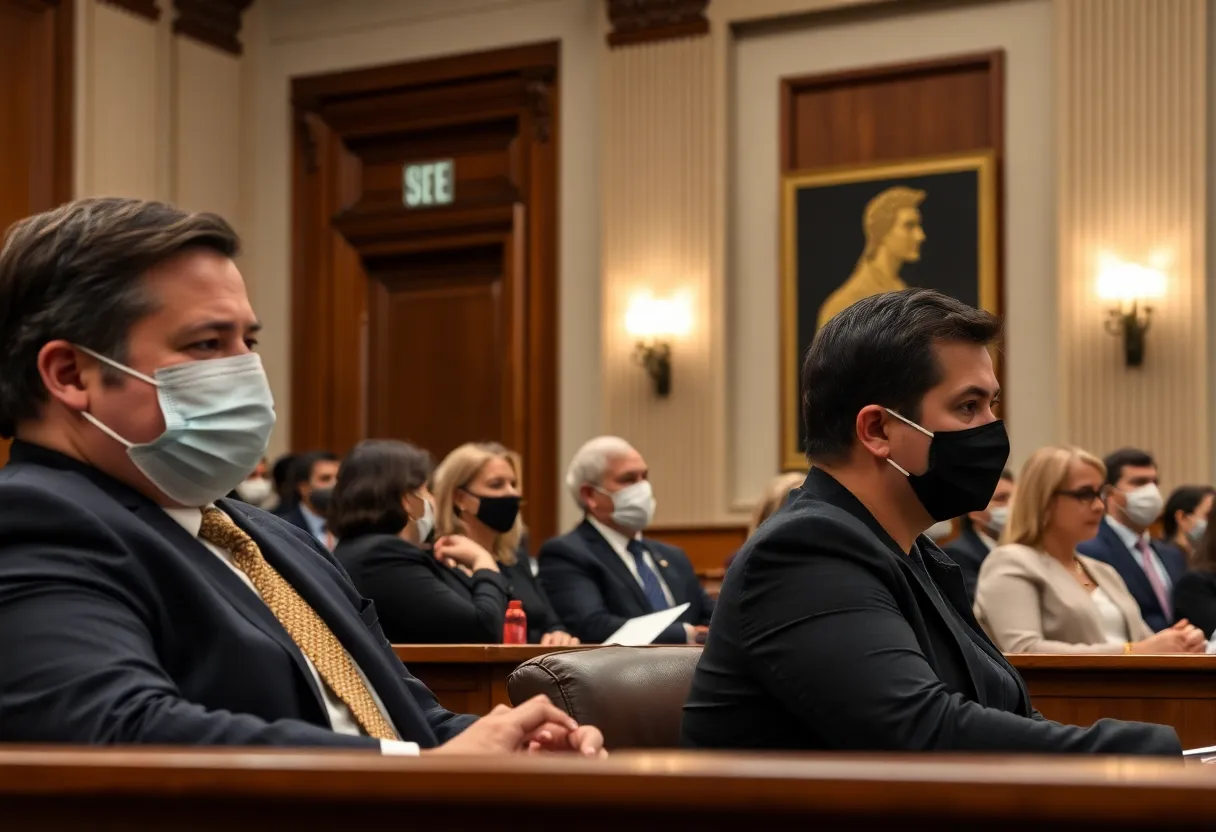

Public Health Leadership Debate in Columbia
On April 3, 2025, the South Carolina Senate Medical Affairs Committee voted against Dr. Edward Simmer’s nomination to lead the new Department of Public Health. Despite past acclaim, criticisms arose from his handling of COVID-19 guidelines and vaccination advocacy. The contentious meeting highlighted ongoing tensions regarding public health directives and their political ramifications. Governor McMaster stands by Simmer, but the future of public health leadership remains uncertain as the state addresses its low health outcomes amid significant scrutiny.
In a surprising twist on April 3, 2025, the Senate Medical Affairs Committee of South Carolina delivered an unfavorable vote for Dr. Edward Simmer’s nomination as the inaugural director of the newly formed Department of Public Health. It was a tense committee meeting held in the heart of Columbia, where multiple senators gathered to discuss the future of public health in the state during an ongoing pandemic.
Previously, Dr. Simmer had earned great acclaim for his work as head of the South Carolina Department of Health and Environmental Control following his confirmation in 2021—with nearly unanimous support from lawmakers. However, the mood shifted dramatically this time around. The main contributors to the negative vote stemmed from lingering frustrations about his approach to handling the COVID-19 pandemic.
Dr. Simmer advocated strongly for COVID-19 vaccinations, often wearing a mask to protect his wife, who has a compromised immune system. While his intentions were rooted in care, the public and some committee members labeled him a “double masker,” which sparked more criticism than support. Despite the heat, Dr. Simmer pointed out that during his management, South Carolina improved its rankings in public health, moving from 45th to 37th in overall measures—a positive trajectory that he believes should not go unnoticed.
When Governor Henry McMaster nominated Simmer for this new role, he emphasized the doctor’s impressive qualifications as a retired U.S. Navy psychiatrist. However, backlash followed the nomination, reflecting deeper frustrations among lawmakers. Some senators expressed doubts about the framework of public health guidelines during the pandemic, particularly around educational environments. There was particular scrutiny over the purchase of Plexiglas barriers in schools, which some thought may have been unnecessary or ineffective.
Many committee members were not shy about voicing their criticisms. Questions emerged regarding past emails where Simmer urged the public to wear masks and get vaccinated. Underlining his point, Simmer reiterated that he based his recommendations on what was considered the best scientific guidance at the time. While some members acknowledged that critics could be venting broader frustrations with government responses to the pandemic, the impact on Simmer was palpable. He revealed to the committee that he had faced ongoing threats, harassment, and even vandalism as he carried out his duties during a time of crisis.
It’s important to note that the Senate committee did not finalize their decision on Simmer’s confirmation in this meeting, indicating that discussions will continue and more questions will be addressed in the future. There’s a fervent debate among advocates that punishing him for the choices made amid immense uncertainty sets a troubling precedent for public health officials. Amid all the tension, supporters highlight the need for qualified leadership to navigate public health challenges, especially since South Carolina currently ranks low in key health outcomes.
Governor McMaster has remained steadfast in his support of Simmer, asserting that no unethical conduct has ever been attributed to his tenure in overseeing public health. The winding path forward not only reflects the challenges of public health administration but also hints at a larger narrative regarding the wider spectrum of harassment faced by public health officials throughout the pandemic.
As Columbia, and indeed all of South Carolina, navigates these complicated waters of public health leadership, the state is left wondering who will emerge as the right fit for guiding its health policies in tough times. One thing is for certain; the conversations around health, leadership, and public trust are just heating up.
News Summary A deadly car crash in Little River, South Carolina, on January 18, 2025,…
News Summary Columbia is gearing up for a chance of snowfall starting Friday night, potentially…
News Summary Wildfires have engulfed South Carolina, leading to a state of emergency and mandatory…
News Summary In a somber event, South Carolina executed Mikal Mahdi by firing squad on…
News Summary A 39-year-old man, Charles E. Williamson, has been charged with arson for allegedly…
News Summary Duke Energy announces Tim Pearson as the new South Carolina state president, replacing…